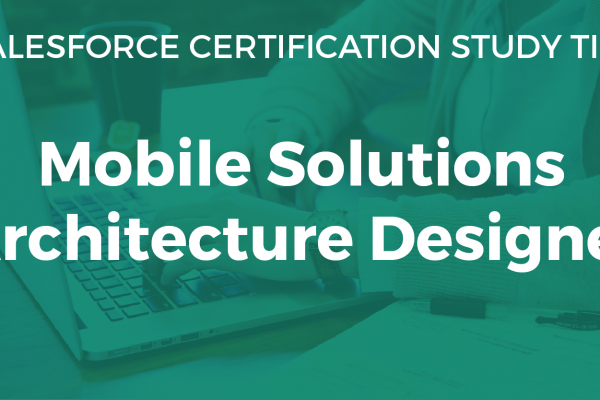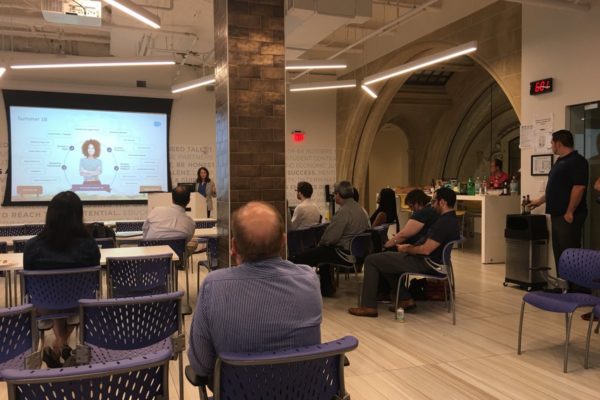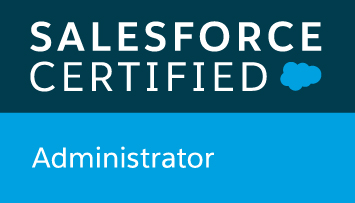As a Salesforce Developer, you’re at the stage of your career where your work and decisions can have a huge impact on the success of a business. Therefore, it’s no surprise that the hiring process for developers can often be comprehensive and somewhat intense, as employers scramble for the very best talent on the market.
Interview situations can be quite intimidating, but this doesn’t need to be the case. As with anything, preparation is critical, so as long as you know what to expect going into your next Salesforce developer interview, you can be confident of presenting the best version of yourself to a prospective employer.
Here are four key tips to help you nail your next Salesforce developer interview.
Refresh your portfolio and lean on it during the interview
A Salesforce Developer role is one of the more technical positions under the Salesforce umbrella, and you’re expected to have a strong working knowledge of Salesforce’s architecture. You need to be able to do the job at hand, but employers are less concerned with what you can do and more interested in what you’ve done in the past.
With demand for Salesforce skills currently greater than the talent pool, it’s your experience as a Salesforce Developer that makes you a valuable candidate, and the only way to demonstrate this is to flesh out your portfolio with all the projects you’ve worked on, your role in those projects, and what you learned from them as a result. It’s always helpful to use examples, so whenever you are asked a technical question, relating it to something you have worked on in the past is a great way to demonstrate knowledge and experience.
Organize your portfolio so you can look at your previous projects and extract which Salesforce edition you worked on, which tools you used, how long the project lasted, what your learning outcomes were, and how you would improve the process if you had to do it again.
Ask about the interview format before you attend
While you’re likely interviewing for an important role, this may have no reflection on the format of the Salesforce developer interview. Some organizations prefer to have an informal chat with candidates to get a feel for who they are as a person, whereas other businesses are very keen to test technical proficiency with a practical exercise or assessment.
While you’re more than capable of adaption to the interview format, it never hurts to find out in advance what you’ll be expected to do. It may calm your nerves to be able to visualize the interview, or even refresh your memory on some of the more technical aspects of development in preparation for a practical assessment.
Be prepared to communicate technical concepts in plain English
According to an independent Salesforce salary survey, only around 23% of Salesforce professionals hold a Platform Developer 1 certification. Developers are in short supply, and so you may find your interviewer doesn’t have a strong working knowledge of Salesforce development—they may not have even used Salesforce before, as it isn’t uncommon for your interview to be conducted by a hiring manager or HR representative, especially if it’s a large company.
With this in mind, you need to be prepared to communicate technical concepts in ways that a non-expert can understand. This is not as easy as it sounds, especially if you’ve been working in a development environment for a long time. You’d be surprised what seems normal to you but is complete gibberish to a layperson, so take some time to break down a few of the more complicated processes involved in Salesforce development and consider whether it would make sense to the average person on the street.
The bottom line is turnover, so always relate back to it
Whether through streamlining business processes, retaining customers, or visualizing and harnessing data, the reason a business utilizes a CRM product is to generate greater revenue. Don’t become too bogged down with your very individual role in the organization, and remember that you’re there to increase profits. Your prospective employer will welcome anything you can do to boost that bottom line.
If you haven’t been able to ascertain a company’s primary revenue streams through your own research, you can discuss this with your interviewer. After all, you’ll need to know exactly where your prospective employer fits into its own market to truly understand the business. Also, ask about the value of Salesforce to the business, and where they feel more value could be gained from the CRM. If you can suggest ways to optimize these areas through your own knowledge, and increase revenue as a result, you could prove yourself as a valuable asset to the business before your interview has even concluded.
Conclusion
Following these four tips will give you the best chance of receiving that coveted job offer. Just remember to always be honest with the interviewer, remain composed, and have confidence in your ability. Your skills and know-how are extremely valuable in the CRM market, so the interview is just as important for your prospective employer as it is for you!
Update 6/27/19
If you’re looking at some common developer interview questions, I contributed to this article that covers some questions that may be helpful.





